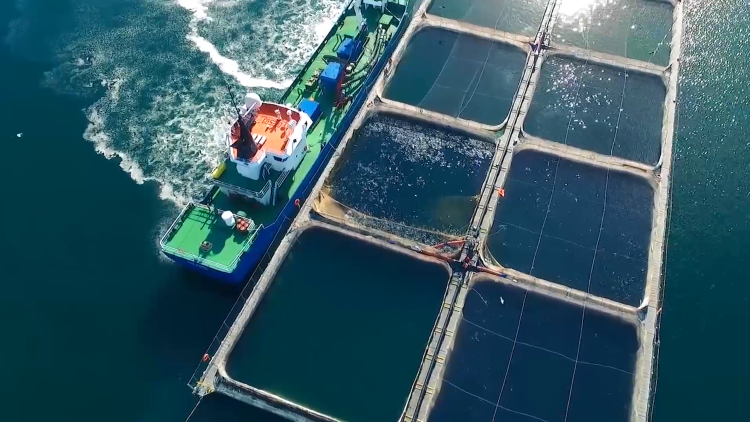Do mint foods contain growth hormones or antibiotics?
No. Skretting foods do not contain growth-promoting hormones. In some markets, antibiotics are added to Skretting feed at the customer's request and on veterinary prescription, in accordance with specific rules set by law. The veterinary prescription requirement ensures that use is well documented and justified, based on proper diagnosis, helping to reduce unnecessary antibiotic use.
Medicines can only be used in case of illness, never as a preventive measure or as a growth promoter. To reduce the risk of transferring trace amounts of antibiotics to consumers in treated animals, medicated feed containing antibiotics should be produced and administered under strict controls. A "waiting period" must be respected, which is the set period of time that is required between treatment and harvest. This ensures that the drug is no longer present in the fish when consumed.
Skretting is working hard to reduce the use of antibiotics by recommending best management practices, encouraging the use of vaccines and promoting the use of functional diets to minimise the risk of disease. Although we strive to keep animals healthy and disease-free, bacterial diseases inevitably occur. In some of these cases, antibiotic treatment still plays an important role in alleviating the suffering of the animals, safeguarding the health and well-being of the animals. Therefore, the central principle is to use antibiotics responsibly, as little as possible and only when necessary.
The recently published ESVAC report, which represents data from 31 EU/EEA countries, shows that antibiotic use in animals is continuously declining, with a 34% drop in sales of veterinary medicines between 2011 and 2018. Measures such as national action plans, prudent use of antibiotics in animals, and restriction of the use of certain antimicrobials in food-producing animals have contributed to this decline.

Concrete support to reduce the use of antibiotics
The Chilean salmon industry has long been criticised for its extensive use of antibiotics. In recent years, growing pressure from governments and consumers has resulted in a strong industry focus to reduce antibiotics. This has led to the development of many useful innovations and to overcome this challenge, Skretting initiated the Pincoy Project in 2016 to bring together industry partners from various stages in the Chilean salmon production chain to find a holistic solution. In addition to making important improvements in health, welfare and monitoring, Pincoy 1.0 was successfully completed, and the roll-out of the second phase, Pincoy 2.0, took place at the end of the year. Current participants include Skretting, AquaGen/Blue Genomics, Pharmaq, Centrovet, Cermaq, Blumar and Camanchaca.